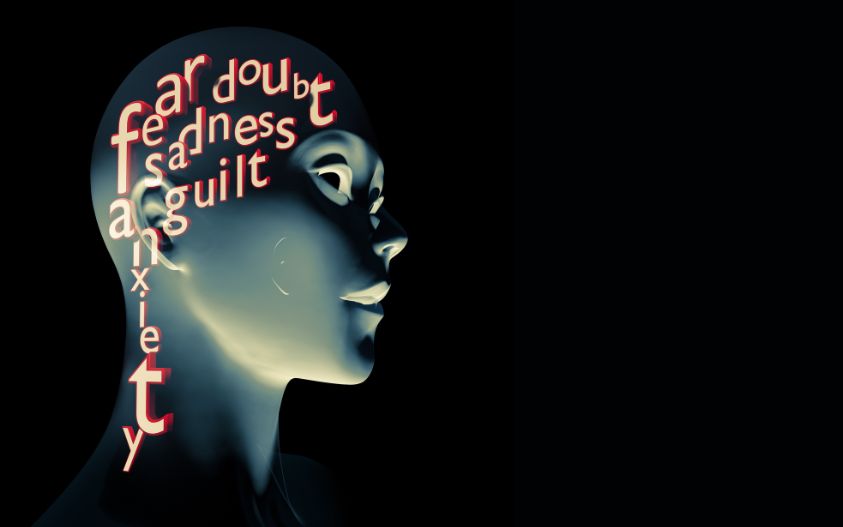Anyone who has been addicted to substances, or has a loved one struggling with addiction, knows that the disease leads to some abnormal ways of thinking. Psychological and cognitive changes occur, leading even the most rational people to make decisions that are tough for others to comprehend. Recognizing and understanding the common thought processes that propel people deeper into the grip of addiction is crucial for effective intervention.
This article aims to unlock the mysteries of the mind by decoding the thought patterns prevalent in substance abuse. By shining a light on these psychological changes, we seek to foster greater awareness and pave the way for more personalized and effective treatment approaches in luxury rehab settings.
The Psychology of Addiction
Addiction is complex because it is both a physical dependency on substances, as well as a mental illness. People with addiction present psychological, physical, and social struggles. The psychological issues present in several common thought patterns that dictate behavior and influence the individual’s ability to seek help. Understanding these patterns is essential for anyone looking to overcome addiction or support someone in their journey to recovery.
Common psychological patterns include denial, in which the individual refuses to acknowledge the severity of their addiction; justification, where the addict rationalizes their substance use as being under control or deserved; and minimization, the downplaying of the addiction’s negative outcomes. These thought patterns are not only barriers to recognizing the need for help but also challenges that treatment strategies must address.

Common Thought Patterns in Substance Abuse
Denial of the Problem
Denial is a powerful defense mechanism that allows individuals to avoid confronting the reality of their addiction. By refusing to acknowledge their substance abuse, individuals can continue their behavior without accepting that they are facing significant social, physical, and emotional struggles. This thought pattern is a significant hurdle, especially in the initial stages of seeking help and recovery.
Justification of Behavior
Many people struggling with addiction find ways to justify their substance use, often citing stress, emotional pain, or social pressures as reasons for their behavior. This rationalization helps to create an illusion of normalcy, making it harder to recognize the destructive nature of their addiction.
Minimization of Consequences
Minimizing the negative impact of substance abuse is a common thought pattern where people acknowledge the problem but downplay its seriousness. By convincing themselves and others that the consequences are not as harmful as they appear, people struggling with addiction avoid facing the full extent of the damage caused by their addiction.
Feeling of Isolation
Addiction often leads to a profound sense of loneliness and misunderstanding. People abusing substances often believe that no one understands their struggles or that they are alone in their fight against addiction. This isolation can reinforce substance use as a coping mechanism, further entrenching the addiction.
How Rehabs Approach The Impact of Thought Patterns on Recovery
The pathway to recovery from substance abuse is heavily influenced by the individual’s thought patterns, which can both hinder and facilitate the healing process. Recognizing and addressing these patterns is crucial for successful treatment outcomes.
- Breaking Through Denial: Overcoming denial is the first step in recovery, requiring strategies that help individuals acknowledge their addiction. The best rehab centers utilize evidence-based interventions to guide patients toward this realization, emphasizing the need for treatment.
- Countering Justification: Addressing justifications for substance use involves challenging these rationalizations through cognitive restructuring. Patients learn to identify triggers and develop healthier coping strategies, moving away from substance reliance.
- Confronting Minimization: Effective recovery programs confront the tendency to minimize addiction’s impact by presenting factual information about its consequences. This approach helps patients understand the severity of their situation and the importance of seeking help.
- Alleviating Isolation: Rehabs counter the sense of isolation by fostering a supportive community. Group therapy and peer support networks encourage sharing and mutual understanding, reducing feelings of loneliness and promoting recovery.
- Tailored Therapeutic Approaches: A combination of Cognitive Behavioral Therapy (CBT), Dialectical Behavior Therapy (DBT), Motivational Interviewing (MI), and mindfulness practices address the psychological aspects of addiction. These personalized strategies ensure a comprehensive treatment plan that tackles the root causes of substance abuse.
- Empowering Sustainable Recovery: Transforming negative thought patterns equips individuals with the mindset for long-term change. This preparation is vital for navigating life post-rehab, minimizing relapse risk, and promoting a healthier future.
By addressing thought patterns directly, rehab centers facilitate a more effective and enduring recovery process. This approach not only tackles the immediate challenges of addiction but also lays the foundation for a lasting transformation.
Conclusion
Understanding the common thought patterns in substance abuse is essential for effective treatment and recovery. These psychological barriers—denial, justification, minimization, and a sense of isolation—can hinder individuals from seeking the help they desperately need. However, by addressing these patterns through tailored therapeutic approaches, luxury rehab centers can provide the support and care necessary for overcoming addiction. Encouraging individuals to seek professional help and embracing comprehensive treatment strategies can lead to successful recovery and a brighter future free from the chains of addiction.




